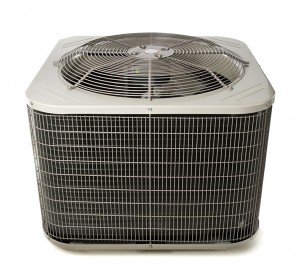 With heat and humidity often overwhelming during Indiana summers, air conditioners and fans are essential for staying cool and comfortable. Even though air conditioners are everyday appliances, it’s important to be aware of their potential hazards. Contact with electric current from air conditioners and fans causes a high number of electrocutions and injuries each year.
With heat and humidity often overwhelming during Indiana summers, air conditioners and fans are essential for staying cool and comfortable. Even though air conditioners are everyday appliances, it’s important to be aware of their potential hazards. Contact with electric current from air conditioners and fans causes a high number of electrocutions and injuries each year.
According to the National Fire Protection Association, in 2010, air conditioners, fans and other related equipment caused 7,400 reported home fires with $207 million in direct property damage. Accidents in June, July and August accounted for nearly half of all air conditioner fires throughout the year.
When relying on air conditioners and fans to keep you cool, make sure you follow these five electrical safety tips:
- Select and install cooling equipment for safety and effectiveness.
- Hire a qualified, licensed electrician to install and service all electrical equipment in your home.
- Follow manufacturer’s instructions for all electric-powered equipment.
- Inspect and maintain equipment regularly for safety.
- Make sure equipment has label showing it has been approved by a recognized testing laboratory.
When checking the safety of your fans, ensure the guards are in place and secure. Fans less than 7 feet off the ground must have guards around them to stop people from touching the blades. And just like with other electrical appliances, check if the plugs and cord are in good condition. All electrical prongs should be in place, and the cord shouldn’t be frayed.
In addition to following these electrical safety tips, don’t forget to change your air conditioner’s filter and have a professional clean the air ducts to protect your family’s health. Mold can grow in the indoor section of an air conditioner and can cause respiratory problems if not cleaned properly.
If you have a window air conditioner in each room of your home, consider upgrading to a ductless mini-split system or a central air conditioner or installing new security measures. Window units and their accordion-like wings that block outside air can be pushed into the home, allowing intruders to enter. By installing an air conditioner bracket to the outside of the window unit or by adding sliding window locks to each side of the frame, your window air conditioner will be harder to move out of place. Ductless mini-split systems have a three-inch hole connecting the outside and inside units’ refrigerant lines, leaving your windows locked and making it harder for unwanted guests to enter.
“While air conditioners, fans and electricity in general have made our lives easier, routine safety checks are necessary to ensure our families’ safety,” said Tom VanParis, CEO of Indiana Electric Cooperatives.
Sources: Electrical Safety Foundation International, National Fire Protection Association, Shawn Kresge Electric Heating, Safety Toolbox Topics




